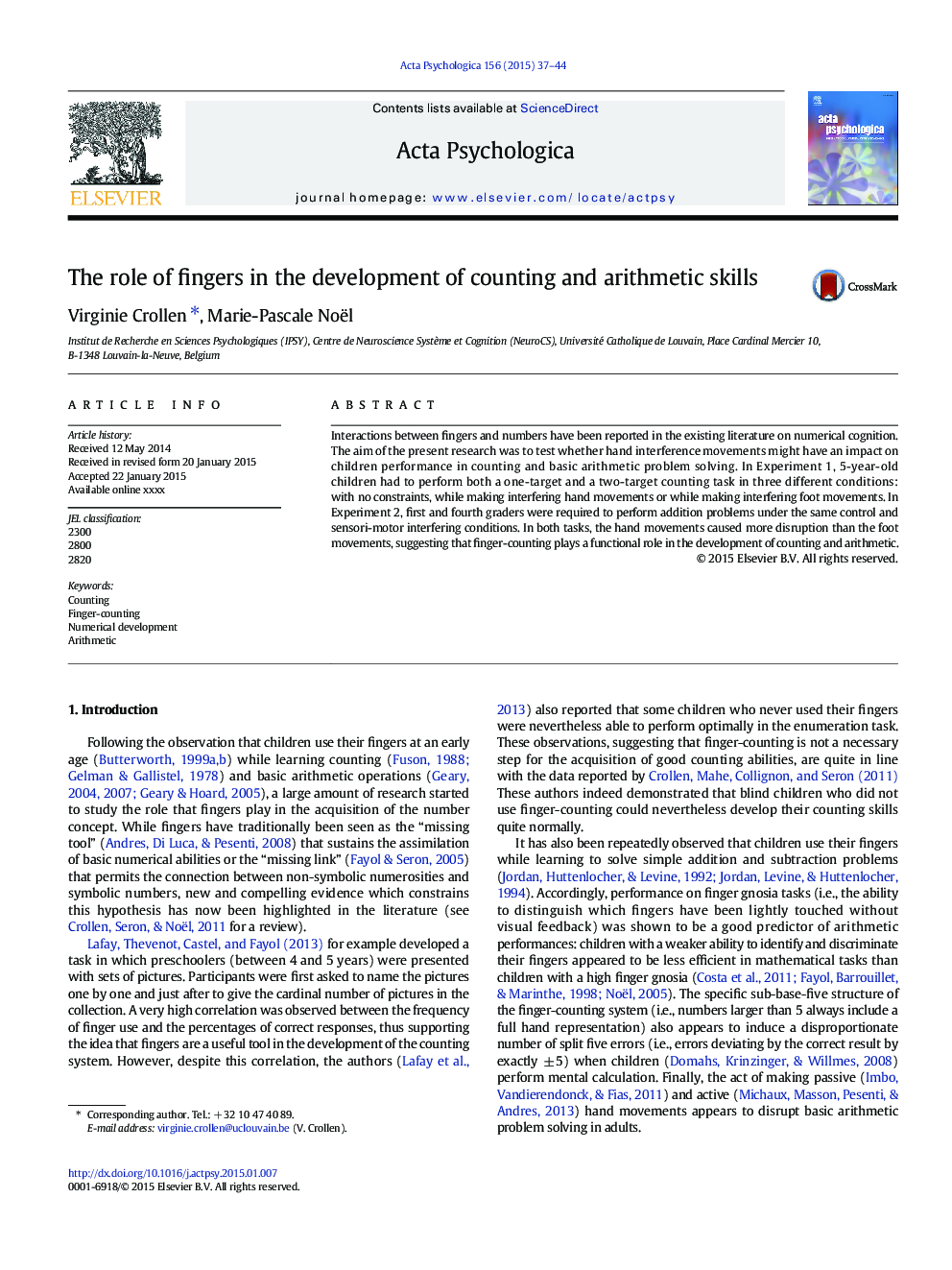| Article ID | Journal | Published Year | Pages | File Type |
|---|---|---|---|---|
| 7277434 | Acta Psychologica | 2015 | 8 Pages |
Abstract
Interactions between fingers and numbers have been reported in the existing literature on numerical cognition. The aim of the present research was to test whether hand interference movements might have an impact on children performance in counting and basic arithmetic problem solving. In Experiment 1, 5-year-old children had to perform both a one-target and a two-target counting task in three different conditions: with no constraints, while making interfering hand movements or while making interfering foot movements. In Experiment 2, first and fourth graders were required to perform addition problems under the same control and sensori-motor interfering conditions. In both tasks, the hand movements caused more disruption than the foot movements, suggesting that finger-counting plays a functional role in the development of counting and arithmetic.
Related Topics
Life Sciences
Neuroscience
Cognitive Neuroscience
Authors
Virginie Crollen, Marie-Pascale Noël,
